David Landis
dplandis@mosaicmennonites.org
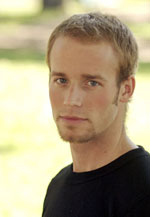 Our leadership cultivation and communication team meets on Tuesday mornings at Bucks County Coffee in Philadelphia’s Manayunk neighborhood. I often wake up early to make the bike trek south from Harleysville, finishing the route along the Schuylkill River.
Our leadership cultivation and communication team meets on Tuesday mornings at Bucks County Coffee in Philadelphia’s Manayunk neighborhood. I often wake up early to make the bike trek south from Harleysville, finishing the route along the Schuylkill River.
This journey frequently presents challenges and discomforts—cold rain, irritable and inattentive drivers with perceived time constraints and occasional flat tires. Each ride presents opportunities to learn from unpredictable twists and turns. Preparing myself for this weekly jaunt from the suburbs has become a disciplined ritual. Arriving at the coffee shop a few minutes early often creates a welcome space to recharge for the day.
On one of these mornings in Manayunk, we invited a few others to talk about peace and justice initiatives in the Philadelphia region. With a slightly larger group, we chose to meet at the outdoor tables along the street because there wasn’t enough room inside. During the meeting, a lively older homeless man rolled up in his wheelchair and requested money to buy tokens for the public transit system.
We offered to buy him coffee and a bagel instead, which he accepted after an initial rebuttal. He began to eat and said, “Life is good. I got all this stuff.†A minute later he added, “No, I’m not eating that. I don’t need no sugar. I ain’t eating that…†We continued the meeting as he sat next to us, the situation progressing with a delicate balance of awkwardness and compassion.
The interruption was interesting on various levels. Because we had decided to meet in a place other than a Mennonite office in the suburbs, we had an opportunity to meet a person with physical needs living among us, providing a new relationship and the accompanying sense of discomfort. It was an opportunity to extend hospitality, comfort, and care for someone who might not be able to make it on their own. It was the chance to actively create community.
The discomfort, risk, and awkwardness inherent in encounters like this are ultimately what bring forth new life. And it often seems it’s most difficult to engage these growing pains with the people who are closest to our hearts—our extended church family: children, grandparents, students, and campers. By risking our comfort to care in these familiar relationships, we will be able to extend trust to those who are currently outside of our church culture—whether on the streets of Manayunk, from a different denominational background, or those who may be suffering from the war in Lebanon or experiencing religious persecution in Indonesia.
This issue explores how seeking to live out Anabaptist values can proactively foster agents of change for the reconciliation of relationships within our communities—locally and globally. It is easy for Christians to agree that there is opportunity for compassion. The challenge that will take us beyond what’s comfortable will be acknowledging our obligation to actively care by working for transformation in our community.
Julie Prey-Harbaugh’s article offers a new way of understanding and participating in Jesus’ saving work. She dreams about how the body of Christ leap will leap into action to meet the pain of broken relationships. As Brad Glick walks through the personal journey that inspired his preparation to work for structural change within social systems that inhibit the potential of our future, he quotes Beverly Harrison saying that children embody the vision and dreams of their culture. This culture is the Anabaptist community we create. Julie presents a good question then for our discernment: “What are your deepest desires and hopes for their lives?â€
May God give us strength to move beyond our fear into the awkward future that awaits us for the sake of both this generation and the next.
David Landis is an Associate for Communication and Leadership Cultivation for Franconia Conference.

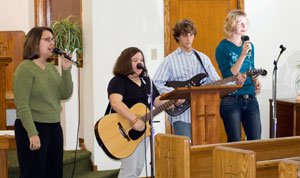 I was going to learn about living simply. I was going to learn about living in community. I was going to experience what it was like to live among the poor. I was trading in my safe, warm, suburban Philadelphia apartment for a rambling, drafty, old house in Kernville. I was trading in easy access to the beach for a mountain view outside my front door. I would no longer have papers to grade, old friends to visit or a regular paycheck to deposit. Life would be different, but I trusted that God was directing me to lead a Service Adventure unit in Johnstown, Pennsylvania, for the next two years.
I was going to learn about living simply. I was going to learn about living in community. I was going to experience what it was like to live among the poor. I was trading in my safe, warm, suburban Philadelphia apartment for a rambling, drafty, old house in Kernville. I was trading in easy access to the beach for a mountain view outside my front door. I would no longer have papers to grade, old friends to visit or a regular paycheck to deposit. Life would be different, but I trusted that God was directing me to lead a Service Adventure unit in Johnstown, Pennsylvania, for the next two years.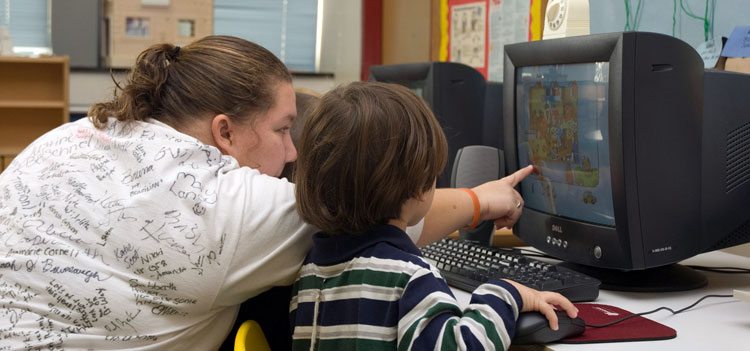
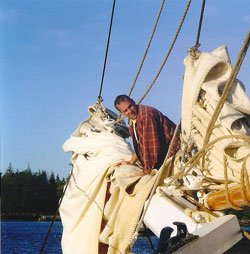 Editor’s Note: Each year Franconia Conference and Eastern District Conference award Clayton Kratz scholarships for emerging leaders who are preparing for roles in church leadership. This year Intersections invited Brad to tell his story and sojourn in pursuing a vocation at the intersection of church leadership and law school.
Editor’s Note: Each year Franconia Conference and Eastern District Conference award Clayton Kratz scholarships for emerging leaders who are preparing for roles in church leadership. This year Intersections invited Brad to tell his story and sojourn in pursuing a vocation at the intersection of church leadership and law school. 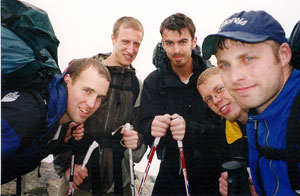 I loved my six years at Spruce Lake. Solidifying the foundation of the Expeditions program, planning trips, leading an exceptional staff, and developing relationships with parents and campers were tremendous experiences. During this time, I was led to pursue a joint law and theology degree. As I kept in touch with a few of the delinquent youth from New Hampshire and witnessed similar experiences at Spruce Lake, I became upset by the breakdowns in the school, welfare, and court systems of the state. I saw good kids who had suffered tremendous abuse, yet had a real inner strength and desire to change, floundering without any support from their families, communities, or schools. While some of these kids were not in the court system yet, circumstances were harming and inhibiting their actual and potential lives.
I loved my six years at Spruce Lake. Solidifying the foundation of the Expeditions program, planning trips, leading an exceptional staff, and developing relationships with parents and campers were tremendous experiences. During this time, I was led to pursue a joint law and theology degree. As I kept in touch with a few of the delinquent youth from New Hampshire and witnessed similar experiences at Spruce Lake, I became upset by the breakdowns in the school, welfare, and court systems of the state. I saw good kids who had suffered tremendous abuse, yet had a real inner strength and desire to change, floundering without any support from their families, communities, or schools. While some of these kids were not in the court system yet, circumstances were harming and inhibiting their actual and potential lives.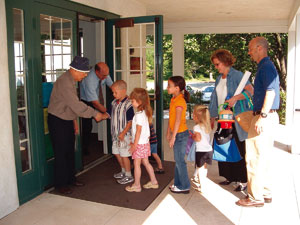 Two years ago, I moved to southeastern Pennsylvania after graduating from Messiah College. My first introduction to Anabaptist theology was during my time at Messiah. I was drawn to the focus on community, service, and nonviolent peacemaking, resulting in a desire to attend an Anabaptist church. Online I found an abundance of Mennonite churches in the area, and after visiting only two churches I found a congregation to attend regularly—Plains Mennonite. From the moment I walked in the door I was met with warm welcomes by congregants asking genuine questions to find out more about me and from where I came. Instead of relying on designated greeters and the pastor to welcome visitors, many members took it upon themselves to welcome me individually.
Two years ago, I moved to southeastern Pennsylvania after graduating from Messiah College. My first introduction to Anabaptist theology was during my time at Messiah. I was drawn to the focus on community, service, and nonviolent peacemaking, resulting in a desire to attend an Anabaptist church. Online I found an abundance of Mennonite churches in the area, and after visiting only two churches I found a congregation to attend regularly—Plains Mennonite. From the moment I walked in the door I was met with warm welcomes by congregants asking genuine questions to find out more about me and from where I came. Instead of relying on designated greeters and the pastor to welcome visitors, many members took it upon themselves to welcome me individually.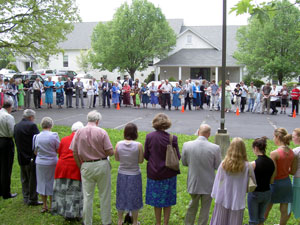 One struggle within a closely knit community is the tendency toward a sense of isolation. The longer I am a member of the Mennonite community within the Franconia Conference in southeastern Pennsylvania the more I find myself interacting only with other Mennonites. It is important that we understand the value of interacting with people from diverse backgrounds, including race, ethnicity, and religious expression, to break down barriers and increase understanding of each other combined with the recognition of Jesus’ call for his followers to be in the world acting as agents for reconciliation of human to human relationships and God to human relationships.
One struggle within a closely knit community is the tendency toward a sense of isolation. The longer I am a member of the Mennonite community within the Franconia Conference in southeastern Pennsylvania the more I find myself interacting only with other Mennonites. It is important that we understand the value of interacting with people from diverse backgrounds, including race, ethnicity, and religious expression, to break down barriers and increase understanding of each other combined with the recognition of Jesus’ call for his followers to be in the world acting as agents for reconciliation of human to human relationships and God to human relationships.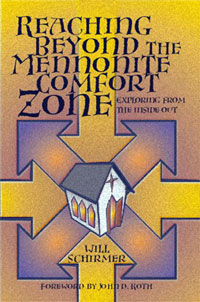 Reaching Beyond the Mennonite Comfort Zone
Reaching Beyond the Mennonite Comfort Zone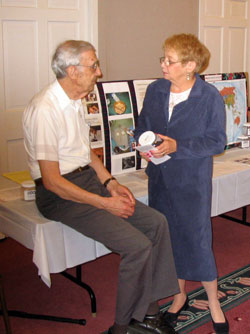 “Service stimulates the mind and unleashes God-given gifts and passions.†So says Dock Woods Community resident Claude Good, as he describes the vision behind a recent mission and service fair for Dock Woods residents.
“Service stimulates the mind and unleashes God-given gifts and passions.†So says Dock Woods Community resident Claude Good, as he describes the vision behind a recent mission and service fair for Dock Woods residents.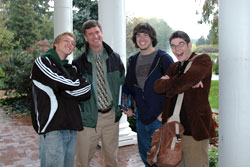 For as long as I can remember, Mr. Wiens would take students out to breakfast just to talk things over. I used to make fun of people that would actually agree to go out with him, thinking that it was kind of odd how the Vice Principal was hanging out with students. One day, Mr. Wiens popped me the big question. “Do you want to go to breakfast tomorrow?†Not wanting to get on his bad side, I agreed. The decision to go with Mr. Wiens to breakfast was possibly the greatest choice I have made so far in my high school career.
For as long as I can remember, Mr. Wiens would take students out to breakfast just to talk things over. I used to make fun of people that would actually agree to go out with him, thinking that it was kind of odd how the Vice Principal was hanging out with students. One day, Mr. Wiens popped me the big question. “Do you want to go to breakfast tomorrow?†Not wanting to get on his bad side, I agreed. The decision to go with Mr. Wiens to breakfast was possibly the greatest choice I have made so far in my high school career.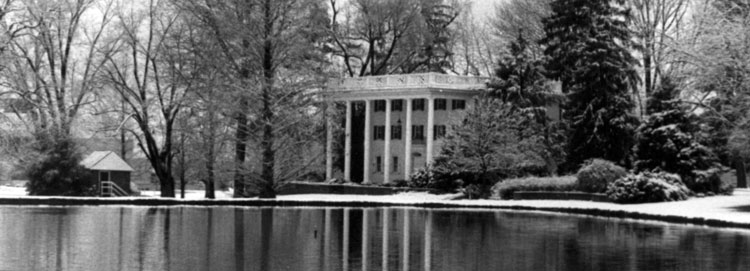
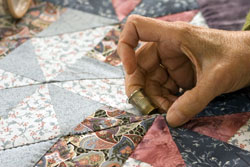 In most cases, the assembled kits are distributed to thousands of people around the world, and the volunteers who pack the kits never meet the recipients. In March 2006, however, Mildred had an opportunity to participate in an MCC-sponsored delegation to distribute kits in Central America. The delegation went to Honduras to visit the Mama Project, a children and youth health and education program. Mildred saw a bundle of school kits being distributed and recognized that they were from Harleysville. “We were privileged to hand out the kits.†Mildred says, “Not all of us can to go Honduras, but this is a way to serve MCC and offer another kind of comfort.â€
In most cases, the assembled kits are distributed to thousands of people around the world, and the volunteers who pack the kits never meet the recipients. In March 2006, however, Mildred had an opportunity to participate in an MCC-sponsored delegation to distribute kits in Central America. The delegation went to Honduras to visit the Mama Project, a children and youth health and education program. Mildred saw a bundle of school kits being distributed and recognized that they were from Harleysville. “We were privileged to hand out the kits.†Mildred says, “Not all of us can to go Honduras, but this is a way to serve MCC and offer another kind of comfort.â€ David Kochsmeier hosts Life With God Broadcast, a radio show playing 30 minutes of preaching, teaching, and a few hymns each week. David is usually the one preaching and teaching. I asked him what he considered the program to be.
David Kochsmeier hosts Life With God Broadcast, a radio show playing 30 minutes of preaching, teaching, and a few hymns each week. David is usually the one preaching and teaching. I asked him what he considered the program to be.